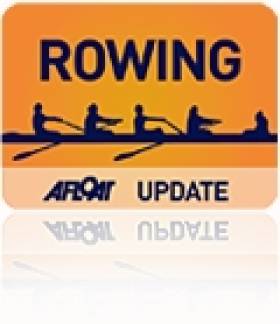Displaying items by tag: Christian Brothers College
#ROWING: Christian Brothers College and Cork Boat Club today signed a joint Memorandum of Understanding at the College in a signing ceremony which moves the longstanding close relationship between the College and the rowing club to a more formal basis.
This follows the recent decision by Christians Brothers College Board of Management to invest in rowing boats and equipment to enhance the facilities available to its students, and to work closely with Cork Boat Club to take advantage of the excellent coaching and training facilities at the club.
The chief executive of Rowing Ireland, Hamish Adams, attended the signing of the agreement between Christian Brothers College and Cork Boat Club and said “Rowing Ireland is delighted to endorse this joint initiative between Cork Boat Club and Christian Brothers College. Such a positive relationship advancing Schools and Club rowing through one of the most successful Clubs in the country is very innovative and encouraging for the future of our sport.”
Dr. Larry Jordan, Principal of Christian Brothers College, added: “We are delighted to work closely with Cork Boat Club to avail of the excellent equipment, facilities and coaching at the club. Their ethos and ours are very complimentary and the relationship has allowed the college to develop rowing as a sport, as a result of which the College is already competing well at schools competitions both in the UK and Ireland. Many of our past rowers have gone on to row at university level and at the highest levels of rowing both nationally and internationally and are sources of great pride for the College.”
Karen McCarthy, Captain of Cork Boat Club, said: “We are very focused on developing schools rowing, and in fact supported six different schools at the recent Schools Rowing Championships with boats and coaches. The relationship with Christian Brothers College has been a very positive one and we are delighted to now work more closely with the College to develop deep rowing talent in the coming months and years.”
Cork Boat Club is the largest rowing club in Cork City and in 2014 won seven national rowing championships. In 2014 it also had the distinction of being the club with the most rowers selected to represent Ireland in various international competitions.





























































